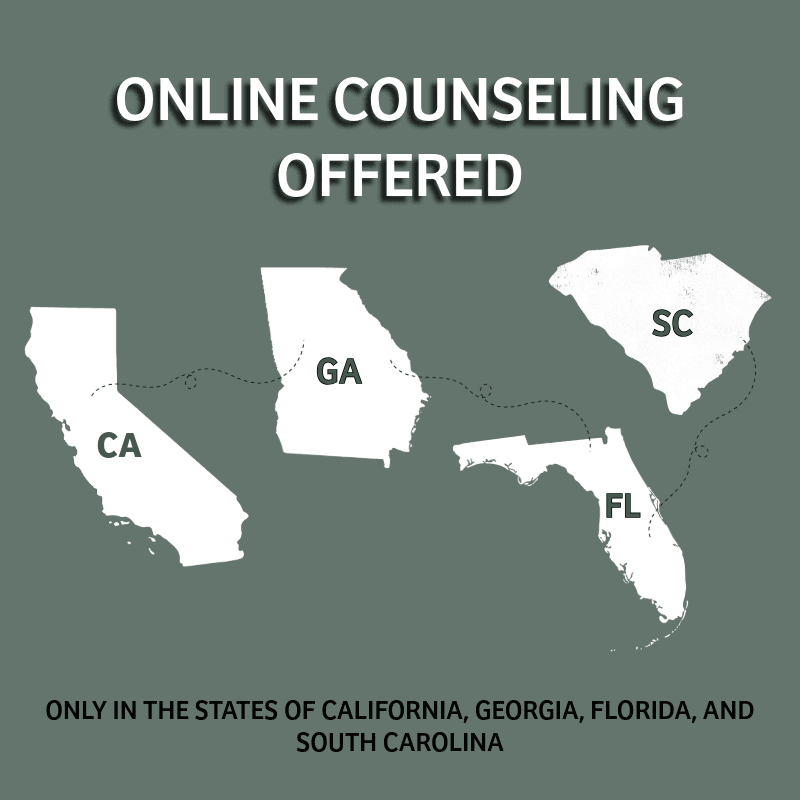If you’re feeling overwhelmed, restless, or trapped in a cycle of worry, you’re not alone. Anxiety disorders are among the most common mental health concerns in the U.S., affecting over 40 million adults every year.
Whether you deal with generalized anxiety, panic attacks, social anxiety, or high-functioning anxiety, the constant mental noise can make even the smallest tasks feel impossible.
But here’s the good news: Individual counseling for anxiety can help you find relief, clarity, and confidence.
In this post, we’ll explore 5 powerful ways that working with a licensed therapist can help you manage anxiety symptoms, understand your triggers, and build lasting coping strategies.
🔍 What Is Anxiety, Really?
Anxiety is a natural stress response—but when it becomes chronic or disproportionate, it can disrupt your life, work, relationships, and health.
Common symptoms of anxiety include:
Excessive worry or fear
Restlessness or trouble concentrating
Racing thoughts
Muscle tension or headaches
Fatigue or insomnia
Panic attacks (racing heart, sweating, shortness of breath)
Avoidance of people, situations, or tasks
Left untreated, anxiety can increase the risk of depression, substance use, burnout, and even physical health problems like high blood pressure or digestive issues.
That’s why early intervention with a therapist is so valuable.
🧠 5 Ways Individual Counseling Can Help You Cope with Anxiety
1. Identify and Understand Your Triggers
Anxiety often feels like it comes out of nowhere. But with the help of a therapist, you can identify patterns and triggersthat contribute to your anxiety.
These might include:
Perfectionism or fear of failure
Social situations
Past trauma
Unresolved grief or family dynamics
Work-related stress or burnout
Why it matters:
When you understand what fuels your anxiety, you can start to respond to it instead of reacting. Your therapist will help you uncover core beliefs or past experiences that may be silently shaping your current stress responses.
2. Learn Proven Anxiety Coping Skills
Therapists often use evidence-based techniques from Cognitive Behavioral Therapy (CBT), Mindfulness-Based Stress Reduction (MBSR), Dialectical Behavior Therapy (DBT), or Acceptance and Commitment Therapy (ACT) to teach clients practical ways to manage anxiety.
Some examples include:
Thought reframing: Learning to challenge anxious thoughts with logic
Grounding exercises: Techniques like 5-4-3-2-1 to stay present
Breathing techniques: Deep breathing to calm the nervous system
Exposure strategies: Gradually facing feared situations
Self-soothing skills: Using music, movement, or nature to regulate emotions
These aren’t just temporary fixes—they’re tools that you can carry for life.
3. Break the Cycle of Avoidance
Anxiety often leads us to avoid the very things that could help us grow—whether that’s going to a social event, asking for a promotion, or having a difficult conversation. Unfortunately, avoidance reinforces the anxiety.
A therapist will gently guide you toward facing these fears in manageable, step-by-step ways that feel safe and supportive.
Through individual counseling, you'll learn:
How to tolerate discomfort without shutting down
The difference between real danger vs. perceived threat
How to take action even when anxiety is present
Result: Greater confidence, resilience, and freedom.
4. Build a Personalized Self-Care Toolkit
Everyone’s anxiety is different. What helps one person might not work for another. That’s why individual counseling is so powerful—your therapist tailors strategies to your personality, values, and lifestyle.
Your personalized self-care plan might include:
Journaling or creative expression
Setting boundaries with technology or toxic people
Establishing healthy sleep routines
Exploring spiritual or nature-based practices
Developing rituals that calm your nervous system
This toolkit becomes your go-to when life feels overwhelming—your emotional first aid kit.
5. Address the Root Cause of Your Anxiety
While symptom management is important, long-term healing often means looking deeper. Many people live with anxiety for years without realizing it’s connected to past trauma, grief, or unmet emotional needs.
Therapy helps you explore:
When your anxiety first started
How early experiences shaped your beliefs
Whether past trauma is still impacting your body or mind
When you process those deeper layers in a safe therapeutic relationship, you often experience profound shifts—not just in your anxiety, but in your overall sense of peace and self-worth.
🙋 Who Can Benefit from Anxiety Counseling?
Individual counseling can help you whether your anxiety is:
Mild but persistent
Triggered by specific situations
Part of a larger mental health diagnosis (like PTSD or OCD)
Impacting your work, school, or relationships
High-functioning but exhausting
Therapy is a safe, non-judgmental space to unpack what you’re carrying and get support from someone trained to help.
🧠 The Science Behind Therapy for Anxiety
Studies consistently show that talk therapy is one of the most effective treatments for anxiety disorders—often as effective as medication for long-term recovery.
✅ CBT has been proven to reduce anxiety symptoms in 60–80% of people.
✅ Therapy teaches skills for emotional regulation, not just symptom suppression.
✅ The benefits of therapy often last long after treatment ends.
Therapy doesn’t just help you cope—it helps you change your relationship with anxiety entirely.
🌿 Real Life After Anxiety Counseling
After working with a therapist, many clients say:
“I can finally breathe again.”
“I’m no longer afraid of my own thoughts.”
“I’ve learned how to trust myself.”
“I don’t feel alone anymore.”
Imagine waking up with less fear, more clarity, and the tools to handle whatever comes your way.
That’s what counseling can offer.
📍 Counseling for Anxiety in Johns Creek & Alpharetta, GA (AND ONLINE)
At JCAC – Johns Creek & Alpharetta Counseling, we offer individual therapy for anxiety tailored to your unique situation.
Our licensed counselors are trained in:
CBT for anxiety
Trauma-informed care
Mindfulness-based practices
Holistic wellness
Faith-integrated counseling (if desired)
You’ll be matched with a counselor who understands your needs and helps you create a sustainable path toward peace and confidence.
💬 Take the First Step Toward Relief
You don’t have to keep living with constant worry or fear. Anxiety is treatable—and healing is possible.
If you’re ready to feel better, we’re here to walk with you.
📞 Contact JCAC today to schedule your free consultation.
Let’s build the tools you need to thrive.





